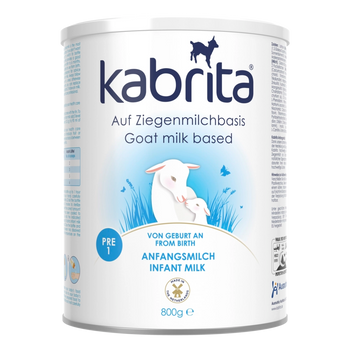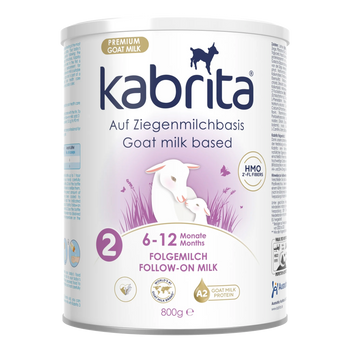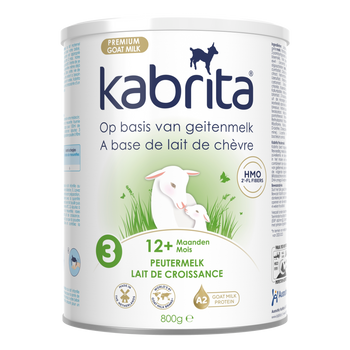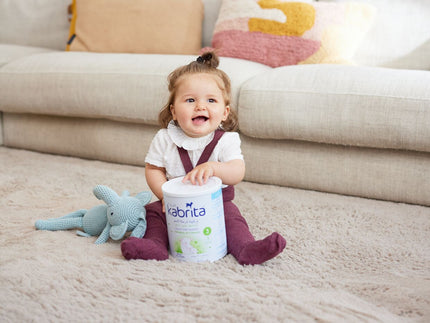Types of formula
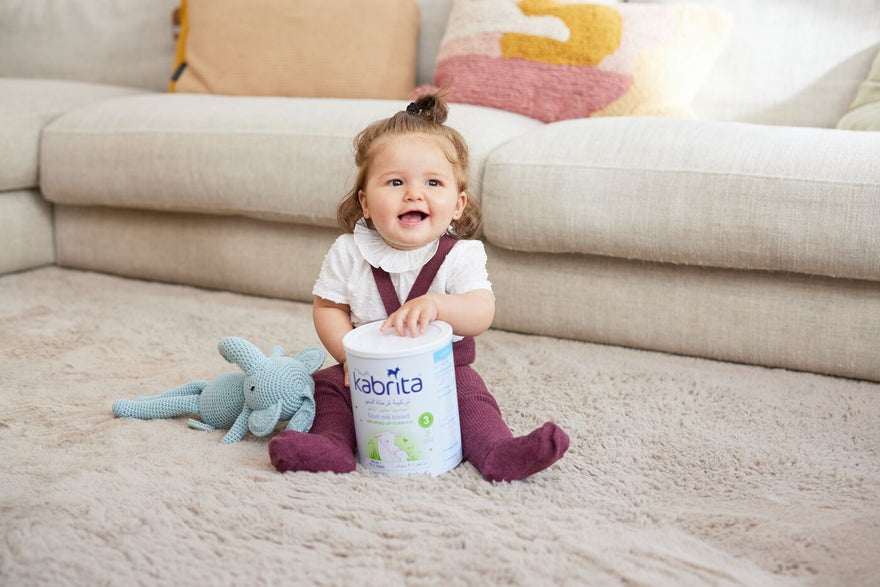
Sometimes, you can't see the wood for the trees. For whatever reason, you can't breastfeed (anymore). Maybe it has become too difficult because your baby needs special nutrition, or you have to stop breastfeeding for other (personal) reasons. Anyway, as soon as you start Googling, you come across so many types of formula, you're a bit stumped. And we haven’t even mentioned all the opinions of other parents and the people around you! To help you choose the best formula for your baby, we have listed all types of formula for you.
Standard formula and special formula
Broadly speaking, there are two major differences in types of formula:
- Standard formula
- Special (diet) formula
If your baby does not suffer from any (digestive) issues, we recommend using standard formula. If your baby does suffer from ailments, there are several different formula options. The best type of formula for that situation depends on the ailments your baby is suffering from.
Note: always consult your doctor to determine the best formula for your baby and do not switch too quickly or too often.
Hunger
It is best to breastfeed on request. If your baby asks for more, feel free to give it. It’s a bit different with bottle feeding. Is the “normal” amount of formula not enough to satisfy your baby? Or does your baby protest or cry when the bottle is empty? Does your baby drink too quickly and does he/she suffer from other ailments (like thrush)? In that case, you can feed your baby thicker formula, so that he/she feels fuller and gets through the day better.
Vomiting
It is common for young babies to bring up some milk. Ask your doctor whether your baby is vomiting too much and if he/she needs special food.
Cramps
Stomach cramps are a common problem in babies. Your baby's intestines are still developing and may find it difficult to process food. Breastfeeding is the most digestible food around, which is of course specially made for your baby. If you are bottle-feeding a baby who suffers from a lot of cramps, comfort food may be better than standard formula.
Allergies
Although allergies are uncommon in babies, yours may just happen to have an allergy. If you have concerns about an allergy, talk to your doctor. He can help you find the source of the allergy and advise you on the best diet. Formula for babies with allergies can be quite pricey. With a statement and prescription from your doctor, it may be (partly) reimbursed.
This overview enables you to find the best formula for your situation:

Formula on a different basis
In addition to the different types of formulas for babies with ailments, you can also distinguish between bottle formulas that are made from a different base material. The vast majority of formulas are made from cow milk. There are roughly three different types of bases:
- Cow milk
- Goat milk (read more about why we are so enthusiastic about goat milk)
- Soy milk
It is a misconception that formula based on soy milk or goat milk is a good alternative for babies with a confirmed cow milk allergy.
Kabrita formula based on goat milk
Did you know that worldwide, we consume more goat milk than cow milk? That is certainly different in the Netherlands! Kabrita formula is a standard formula based on goat milk protein. Goat milk is naturally gentle and mild and forms a good basis for bottle feeds. Kabrita Follow-on milk and Toddler milk combine the mildness of Dutch goat milk with valuable ingredients such as DHA Omega-3 fatty acids* and GOS dietary fibres. This makes Kabrita a suitable choice for babies and toddlers.
*as required by legislation for all FOF
View all our products
